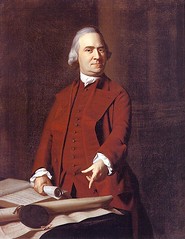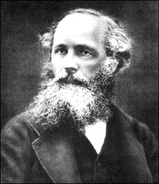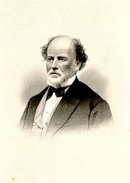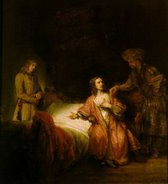Ivan Panin and Scripture Numerics
Many critics mock the Word of God, calling the Bible a collection of myths compiled by its writers with the intent to deceive the naive and gullible. These detractors invariably don't actually invest the time and effort to prove to themselves their claims of inaccuracy and untruths, but rely, instead, on others who claim Scripture is full of contradictions, mistranslations and error. In other words, they base their beliefs on hearsay, not personal study of Scripture.
One man who did invest his time and effort investigating the numerical make up of Scripture was Ivan Panin. Panin, who graduated from Harvard in the United States in 1882, and later became a lecturer on Russian literature. He was also a firm agnostic before he spent over 50 years of his life studying the numerical designs underpinning both the Greek text of the New Testament and the Hebrew text of the Old Testament. The results of his lifelong study was "over 43,000 detailed, hand-penned pages of analysis" generated before his death in October 1942 in his 87th year.
A sampling of the results of his years of studying the numerical structure of Scripture can be found below.
The Heptadic Structure
The recurrence of the number seven - or an exact multiple of seven - is found throughout the Bible and is widely recognized. The Sabbath on the seventh day; the seven years of plenty and the seven years of famine in Egypt; the seven priests and seven trumpets marching around Jericho; the Sabbath Year of the land are well-known examples.
Also, Solomon's building the Temple for seven years, Naaman's washing in the river seven times, and the seven churches, seven lamp stands, seven seals, seven trumpets, seven bowls, seven stars, and so on in the Book of Revelation, all show the consistent use of the number seven.
But there turns out to be much more below the surface. Ivan Panin noted the amazing numerical properties of the Biblical texts - both the Greek of the New Testament and the Hebrew of the Old Testament. These are not only intriguing to discover, they also demonstrate an intricacy of design which testifies to a supernatural origin!
An Example
The first 17 verses of the Gospel of Matthew are a logical unit, or section, which deals with a single principal subject: the genealogy of Christ. It contains 72 Greek vocabulary words in these initial 17 verses. (The verse divisions are man's allocations for convenience, added in the 13th century.)
The number of words which are nouns is exactly 56, or 7 x 8.
The Greek word "the" occurs most frequently in the passage: exactly 56 times, or 7 x 8. Also, the number of different forms in which the article "the" occurs is exactly 7.
There are two main sections in the passage: verse 1-11, and 12-17. In the first main section, the number of Greek vocabulary words used is 49, or 7 x 7.
Why not 48, or 50?
Of these 49 words, the number of those beginning with a vowel is 28, or 7 x 4. The number of words beginning with a consonant is 21, or 7 x 3.
The total numbers of letters in these 49 words is 266, or 7 x 38 - exactly! The number of vowels among these 266 letters is 140, or 7 x 20. The number of consonants is 126, or 7 x 18 - exactly.
Of the 49 words, the number of words which occur more than once is 35, or 7 x 5. The number of words occurring only once is 14, or 7 x 2. The number of words which occur in only one form is exactly 42, or 7 x 6. The number of words appearing in more than one form is also 7.
The number of the 49 Greek vocabulary words which are nouns is 42, or 7 x 6. The number of words which are not nouns is 7. Of the nouns, 35 are proper names, or exactly 7 x 5. These 35 names are used 63 times, or 7 x 9. The number of male names is exactly 28, or 7 x 4. These male names occur 56 times or 7 x 8. The number which are not male names is 7.
Three women are mentioned - Tamar, Rahab, and Ruth. The number of Greek letters in these three names is 14, 7 x 2.
The number of compound nouns is 7. The number of Greek letters in these 7 nouns is 49, or 7 x 7.
Only one city is named in this passage, Babylon, which in Greek contains exactly 7 letters.
And on it goes.
The above information was taken from | Koinonia House Online
"The authenticity of the Holy Bible has been attacked at regular intervals by athiests and theologians alike but none have explained away the mathematical seal beneath its surface.Keith Newman
It would seem the divine hand has moved to prevent counterfeiting in the pages of the Bible in a similar manner to the line that runs through paper money. Bible numerics appears to be God's watermark of authenticity."
More information about Ivan Panin and Bible numerics can be found here: The Very Mysterious Letter of Ivan Panin where, in 1889, Ivan Panin wrote a letter to the New York Sun in reply to a skeptic who challenged "some champion of orthodoxy to come into the arena of the Sun" and give its readers some "facts" in defense of the Christian religion. Ivan Panin was one of the relatively few former skeptics who actually studied Scripture, a study focusing on the mathematical substructure of Scripture and led to his conversion to Christianity. Brought to God by math!
More numerical studies of Scripture can be found in "Bible Numerics" by Ivan Panin; F.W. Grant, The Numerical Bible (7 vols); E.W. Bullinger, Numbers of the Scriptures; and McCormack, R. and "The Heptadic Structure of Scripture."
See also | Is God a Mathematician?
One would be wise to not be too quick buying into the limitless propaganda attacking the Bible. God has left many hidden clues attesting to the fact that His written Word was God breathed, that is, inspired by God. Scripture has one Author who utilized forty amanuenses over a period of 14 centuries to pen his thoughts for man's benefit. There is great profit in believing the Word of God.
2 Timothy 3:16
"All scripture is given by inspiration of God, and is profitable for doctrine, for reproof, for correction, for instruction in righteousness, that the man of God many be complete, thoroughly furnished unto all good works."




















1 comments:
Psalm 122:6 "Pray for the peace of Jerusalem: They shall prosper who love thee."
Post a Comment